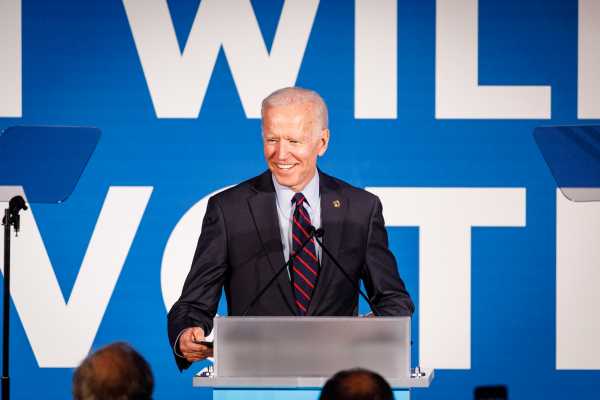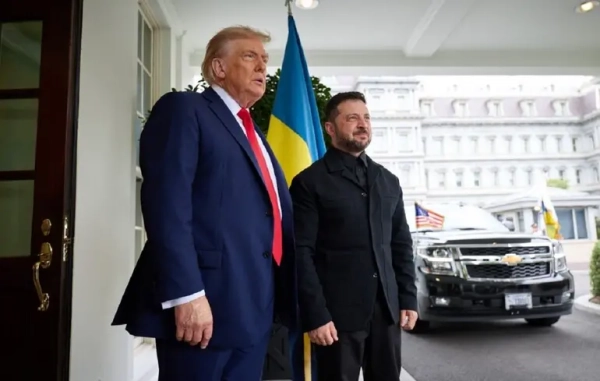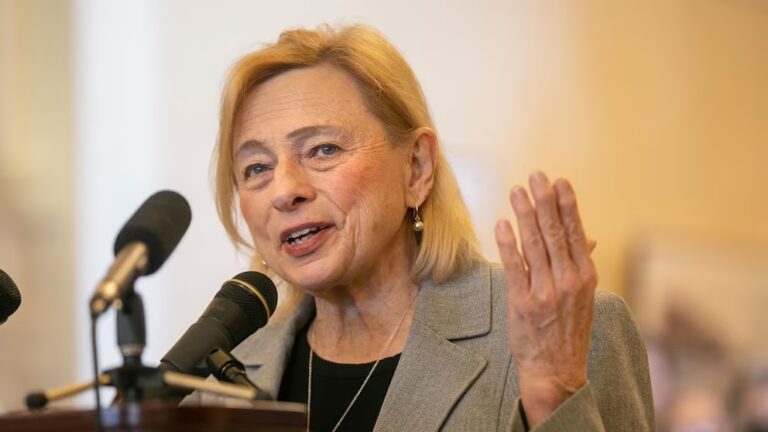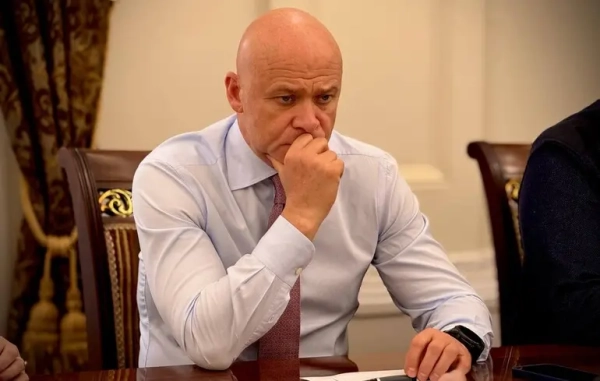
Over seared ahi tuna, langoustine tail, cocktails, and caviar, in settings ranging from the home of a former Boston Red Sox CEO, to a Las Vegas casino, to the Carlyle Hotel in Manhattan, Joe Biden’s donors have been listening to the frontrunner for the Democratic nomination explain that everyday people feel left behind.
The former vice president has been talking to rich people about income inequality a lot lately.
“People feel like they’re being completely left out and they are,” Biden said during a recent fundraiser at the Washington, DC, home of a former ambassador, to a group that included lobbyists and former Sens. Chris Dodd and Evan Bayh. “We just stopped talking to these folks.”
Biden has taken heat for keeping a light campaign schedule compared to his rivals, and not showing up to some 2020 forums and early state Democratic party dinners. From Vox’s count of Biden campaign schedule and press pool reports, the vice president has so far attended more fundraisers than campaign events: 23 fundraisers and 19 campaign stops. The Biden campaign didn’t respond to a request for comment on this story.
Of course, closed-door fundraisers are nothing new in a presidential campaign, which require vast sums of money to stay competitive. (Biden recently revealed his campaign has raised close to $20 million.) But the fact that Biden’s top two competitors — Sens. Elizabeth Warren and Bernie Sanders — have sworn off this type of high-dollar fundraising in favor of grassroots dollars brings Biden’s activities into sharp relief.
Suggested donations for some of Biden’s fundraisers start at $250, while for others, people pay $2,800 each (the maximum an individual can donate to a campaign) to listen to the former vice president talk about his plans to revitalize America’s working and middle classes.
This could be interpreted a few different ways, the more generous of which is Biden getting America’s wealthy on board with a progressive agenda. But because Biden is obviously running as a moderate candidate and talking about incremental change compared to the tax-the-rich proposals of candidates like Sanders and Warren, people see his choices of speaking engagements as reflective of that.
“Those fundraisers are where influence is peddled,” said Brendan Fischer, director of federal reform for the Campaign Legal Center. “It’s effectively buying access. We accept it, and it’s become normalized, but if a fundraiser requires a $2,800 check to get in the door, a candidate is selling access to themselves.”
Biden is trying to straddle a line between appealing to donors and the middle class
Many of Biden’s news-making gaffes, including recent comments about working with Southern segregationist senators in the past to highlight an era of bygone civility in Congress, have happened at the fundraisers, among high-powered Democrats. The Biden campaign invites press to cover these events, something not all candidates do for fundraisers.
But it’s also interesting what Biden is saying about wealth at these events — and whom he is saying it to. Joe Biden is a candidate who has always cultivated a working class image — often evoking his hometown of Scranton, Pennsylvania, in speeches on the stump.
Biden is making a similar economic appeal to donors during his 2020 campaign. In May, he reminded donors in Florida of his nickname “Middle Class Joe.” Besides presenting himself as the best person to take on President Donald Trump, he’s focusing more and more on the issue of the wage gap between the wealthy and everyone else in America.
“When we have income inequality as large as we have in the United States today, it brews and ferments political discord and basic revolution,” Biden said at a recent fundraiser at the Carlyle Hotel in New York City.
Biden has also floated the idea of closing tax loopholes and getting rid of exemptions that benefit the rich at these events. He recently noted that during the presidency of Republican Ronald Reagan, there existed around $800 billion worth of tax exemptions, adding those exemptions have gotten closer to $1.6 trillion now.
“I could take about $400 [billion] away, and it wouldn’t change your standard of living one tiny little bit — not even an iota,” Biden told donors.
Still, he’s not adopting the same aggressive language and policies of Warren and Sanders. Warren has proposed a new wealth tax for America’s ultra-rich: a 2 percent tax levied on assets more than $50 million and 3 percent on assets over $1 billion. Warren wants to use this money to pay for bold proposals, like erasing millions of people’s student loan debt, and creating a debt-free college program.
Sanders, who leaped to political stardom in 2016 when he ran against Hillary Clinton, is still railing against the undue influence of “millionaires and billionaires” on Americans economics and policy. Biden is taking a much more careful tone.
“I mean, we may not want to demonize anybody who has made money,” the former vice president said at the Carlyle fundraiser. “We can disagree in the margins but the truth of the matter is it’s all within our wheelhouse and nobody has to be punished. No one’s standard of living will change, nothing would fundamentally change.”
Again, there are a couple of ways to perceive those remarks, as Vox’s Andrew Prokop recently explained:
Fischer, at the Campaign Legal Center, said it appears Biden is trying to straddle a fine line between responding to the political moment of frustration with America’s wealthy, and needing to ask them for money.
“That’s indicative of the problems these high dollar fundraisers present,” Fischer said. “The candidate has to present themselves on the side of these donors.”
A lingering question over who gets access
It’s worth noting that 2020 has already marked a significant shift in campaign finance, with most presidential candidates not accepting corporate PAC money, and turning down other funding sources. Biden has pledged not to take fossil fuel money, money from federal lobbyists, or corporate PAC money, but did not respond about super PACs, per a survey from Vox’s Dylan Scott.
Still, as Fischer pointed out, it’s a massive shift from 2016, when there were multiple super PACs supporting Hillary Clinton’s candidacy. Now, candidates are trying to distance themselves from the perception they are being influenced by donors.
Even so, many Democratic candidates are holding high-dollar fundraisers. Biden’s donors are paying for more access and face time to the vice president, and writing a $2,800 check means they could potentially have more say on Biden’s future policies, according to Fischer. There’s research to back up that idea: Recent studies on how money influences politics have found that senior policymakers in Congress are more likely to attend meetings with outsiders when donors are requesting them.
“If a candidate is spending a lot of time asking wealthy donors for money, it’s going to be less likely that they’re going to adopt policies that are good for the country but threaten the interests of these wealthy donors,” Fischer said.
And the face time donors are getting with Biden and other 2020 presidential candidates at these smaller fundraisers are a big way to communicate their wants and needs — far more so than anonymous donations would be. That’s the very thing that makes Warren and Sanders’ pledges not to hold these closed-door fundraisers all the more noteworthy.
Of course, there’s the lingering question of whether Warren and Sanders’ vows will backfire on them. There’s the chance they might not raise enough to compete against someone like Biden in the long run, but both candidates are holding steady, and Warren is rising the polls.
“Swearing off high-dollar closed-door fundraisers is a meaningful, significant pledge,” Fischer said. “These big money funds require a lot of time mingling with the wealthy few … making them feel valued, which is more often than not going to have an effect on the policies you’ll promote in office.”
Many of Biden’s campaign events with regular voters have drawn big crowds, and such events don’t lend themselves to one-on-one face time. This is to be expected, but some have complained.
“I wish he were more accessible, but I get it,” New Hampshire state Rep. Nancy Murphy told the New York Times’s Katie Glueck. (Political strategy in the state tends to emphasize smaller events with candidates.) “I realize there are many people, his time is certainly impacted by all of the requirements of where he has to be. So we get it, but certainly we would like to have more access, but we have more access than so many people in other states.”
Sourse: vox.com






